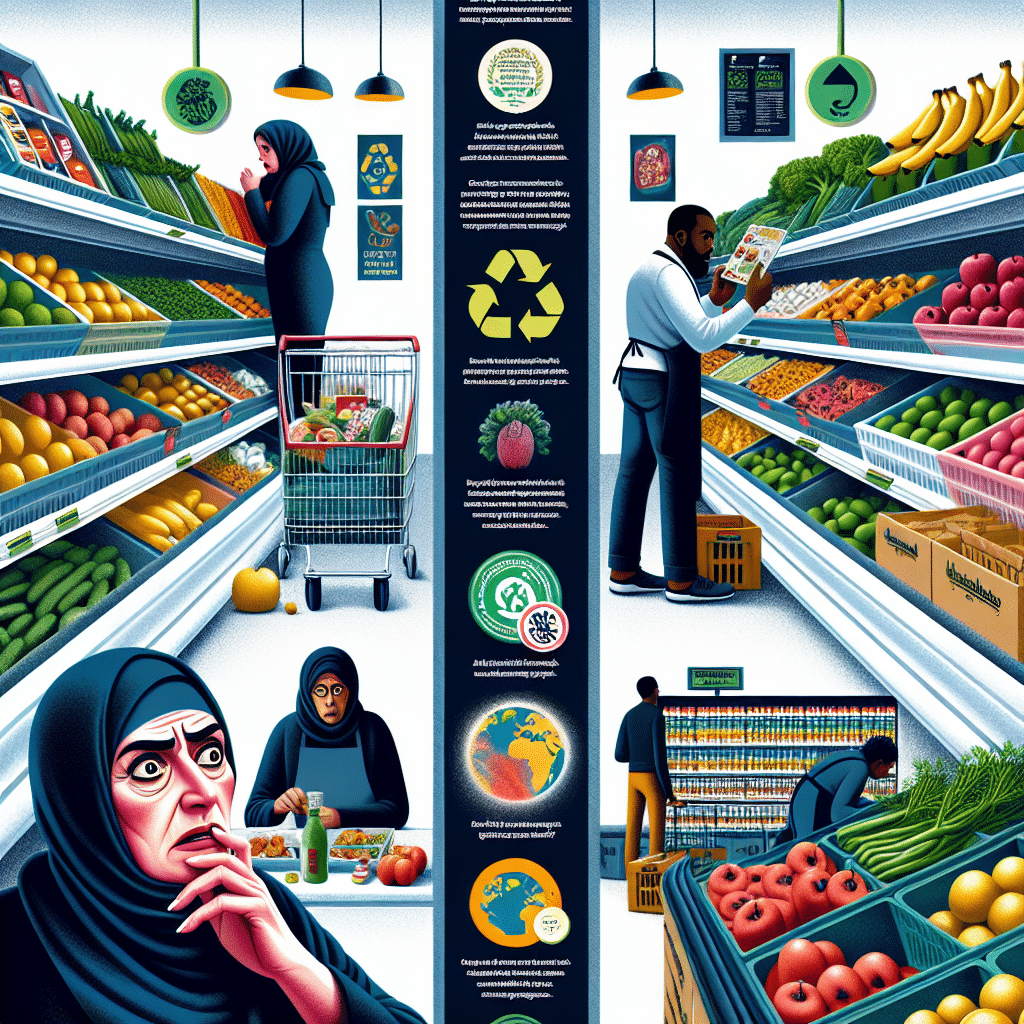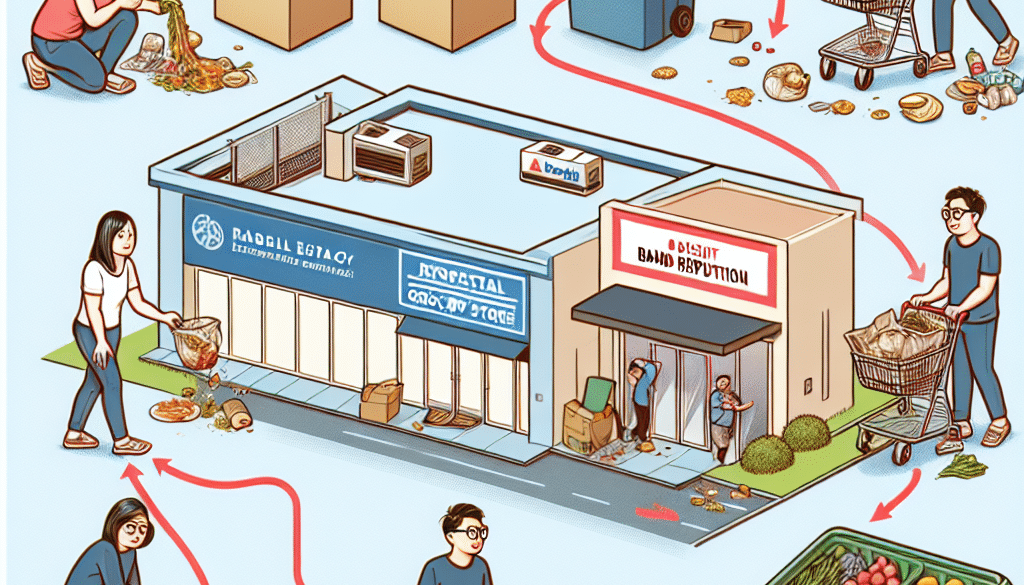Food Waste Impact: Consumer Behavior and Brand Reputation
-
Table of Contents
- Food Waste Impact on Consumer Behavior and Brand Reputation
- The Scale of Food Waste and Its Environmental Impact
- Consumer Awareness and Expectations
- Brand Reputation and Sustainable Practices
- Case Studies: Brands Leading the Way
- Strategies for Brands to Reduce Food Waste
- Consumer Behavior: The Role of Education and Incentives
- Conclusion: The Interconnectedness of Food Waste, Consumer Behavior, and Brand Reputation
- ETprotein: Sustainable Protein Solutions
Food Waste Impact on Consumer Behavior and Brand Reputation

Food waste is a global issue with far-reaching consequences, affecting not only the environment but also consumer behavior and brand reputation. As awareness of sustainability grows, consumers are increasingly making choices that reflect their values, and brands are under scrutiny for their environmental impact. This article explores the intricate relationship between food waste, consumer behavior, and brand reputation, providing insights into how businesses can navigate this landscape.
The Scale of Food Waste and Its Environmental Impact
Food waste is a staggering problem, with approximately one-third of all food produced for human consumption lost or wasted globally. This equates to about 1.3 billion tons per year, according to the Food and Agriculture Organization of the United Nations. The environmental impact is profound, with wasted food contributing to 8% of global greenhouse gas emissions. Moreover, when food decomposes in landfills, it produces methane, a potent greenhouse gas that exacerbates climate change.
Consumer Awareness and Expectations
As consumers become more environmentally conscious, their purchasing decisions increasingly reflect their desire to reduce waste and support sustainable practices. A study by Unilever revealed that a third of consumers prefer sustainable brands, and 21% would actively choose brands if they made their sustainability credentials clearer on packaging and in marketing. This shift in consumer behavior is pressuring brands to adopt more sustainable practices or risk losing market share.
Brand Reputation and Sustainable Practices
Brands that fail to address food waste risk damaging their reputation. Negative publicity around wasteful practices can lead to consumer backlash, as seen in cases where supermarkets have been criticized for discarding edible food. Conversely, brands that demonstrate a commitment to reducing food waste can enhance their reputation and build consumer trust. For example, Tesco’s “No Time for Waste” campaign, which aims to halve food waste by 2025, has been positively received by consumers.
Case Studies: Brands Leading the Way
- Walmart: The retail giant has implemented a comprehensive food waste reduction program, including donating unsold food and converting waste into animal feed and compost.
- Starbucks: The coffee chain introduced a “FoodShare” program to donate unsold food items to food banks, reducing waste and addressing hunger.
- Whole Foods Market: Known for its sustainability efforts, Whole Foods has partnered with organizations to divert food waste from landfills and educate consumers about food waste reduction.
Strategies for Brands to Reduce Food Waste
Brands can adopt several strategies to reduce food waste and improve their reputation among consumers:
- Implementing better inventory management systems to reduce overstocking and spoilage.
- Engaging in transparent labeling practices, such as clear “use by” and “best before” dates.
- Partnering with food recovery organizations to donate surplus food.
- Investing in innovative packaging solutions that extend the shelf life of products.
- Encouraging consumers to buy imperfect produce through discounts and educational campaigns.
Consumer Behavior: The Role of Education and Incentives
Consumer education is crucial in reducing food waste. Brands can play a significant role by providing information on how to store and use leftovers, as well as promoting the benefits of buying only what is needed. Incentives such as loyalty programs for customers who make sustainable choices can also drive behavior change.
Conclusion: The Interconnectedness of Food Waste, Consumer Behavior, and Brand Reputation
Food waste is not only an environmental issue but also a critical factor in consumer behavior and brand reputation. As consumers demand more sustainable practices, brands must respond by implementing strategies to reduce waste. Those that succeed in doing so can enhance their reputation, build consumer loyalty, and contribute to a more sustainable future.
ETprotein: Sustainable Protein Solutions
In line with the growing demand for sustainable food options, ETprotein offers a range of organic bulk vegan proteins that cater to health-conscious consumers and environmentally responsible brands. Their products, including Organic rice protein, clear rice protein, pea protein, and more, are non-GMO, allergen-free, and characterized by a neutral taste. By choosing ETprotein’s sustainable protein solutions, brands can improve their reputation among consumers who prioritize environmental impact in their purchasing decisions.
About ETprotein:
ETprotein, a reputable protein and L-(+)-Ergothioneine (EGT) Chinese factory manufacturer and supplier, is renowned for producing, stocking, exporting, and delivering the highest quality organic bulk vegan proteins and L-(+)-Ergothioneine. They include Organic rice protein, clear rice protein, pea protein, clear pea protein, watermelon seed protein, pumpkin seed protein, sunflower seed protein, mung bean protein, peanut protein, and L-(+)-Ergothioneine EGT Pharmaceutical grade, L-(+)-Ergothioneine EGT food grade, L-(+)-Ergothioneine EGT cosmetic grade, L-(+)-Ergothioneine EGT reference grade and L-(+)-Ergothioneine EGT standard. Their offerings, characterized by a neutral taste, non-GMO, allergen-free attributes, with L-(+)-Ergothioneine purity over 98%, 99%, cater to a diverse range of industries. They serve nutraceutical, pharmaceutical, cosmeceutical, veterinary, as well as food and beverage finished product distributors, traders, and manufacturers across Europe, USA, Canada, Australia, Thailand, Japan, Korea, Brazil, and Chile, among others.
ETprotein specialization includes exporting and delivering tailor-made protein powder and finished nutritional supplements. Their extensive product range covers sectors like Food and Beverage, Sports Nutrition, Weight Management, Dietary Supplements, Health and Wellness Products, and Infant Formula, ensuring comprehensive solutions to meet all your protein needs.
As a trusted company by leading global food and beverage brands and Fortune 500 companies, ETprotein reinforces China’s reputation in the global arena. For more information or to sample their products, please contact them and email sales(at)ETprotein.com today.














